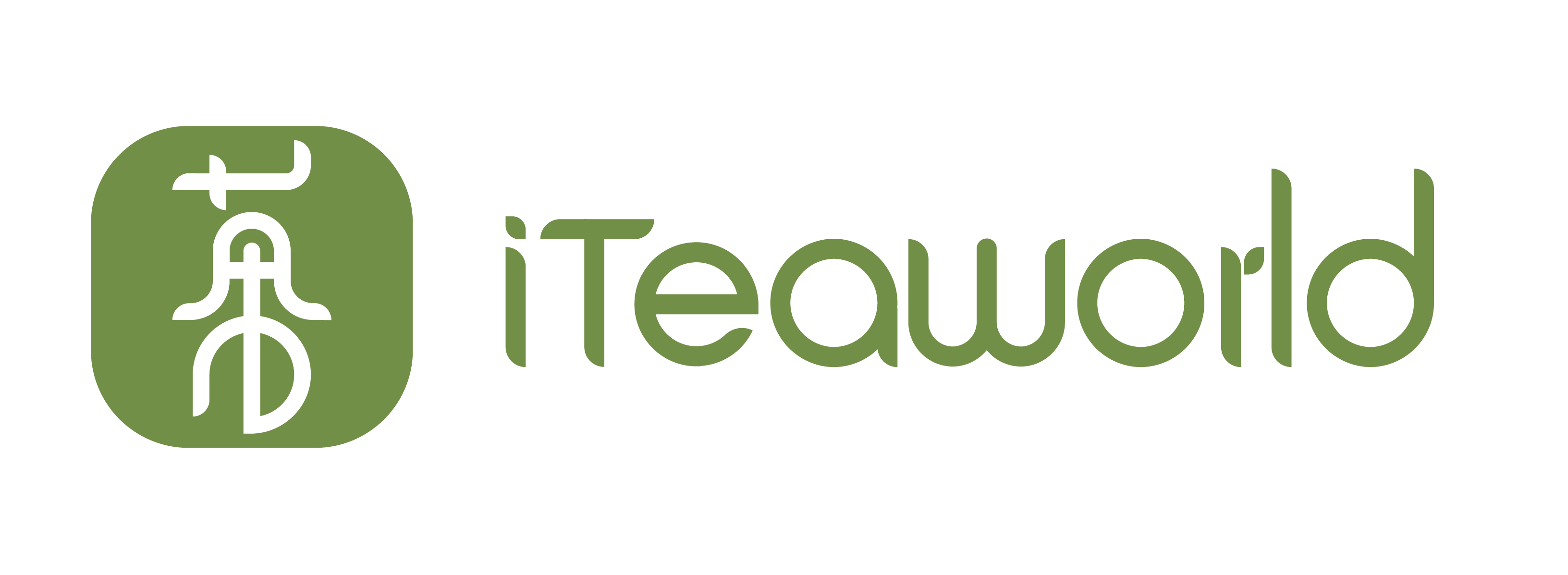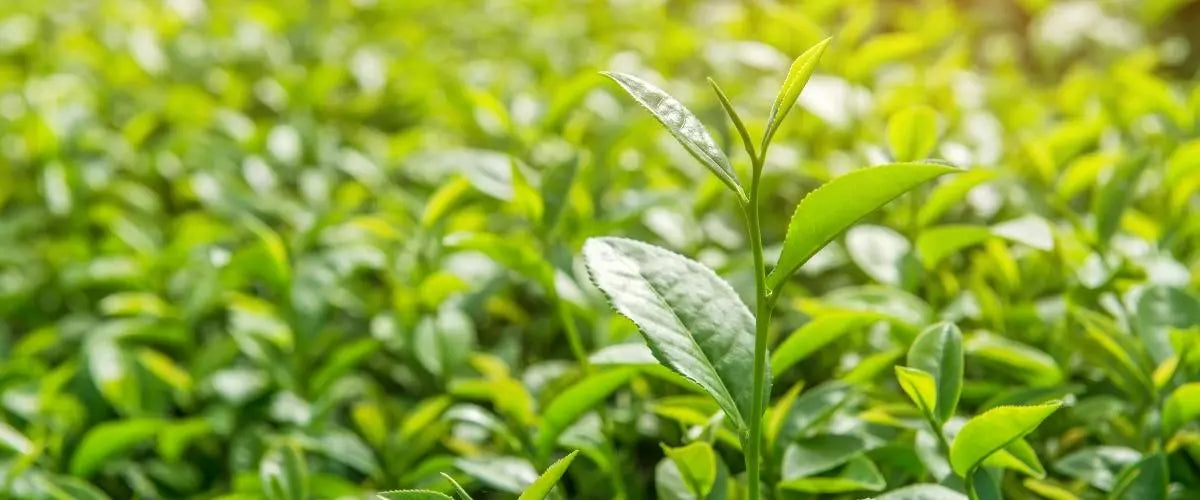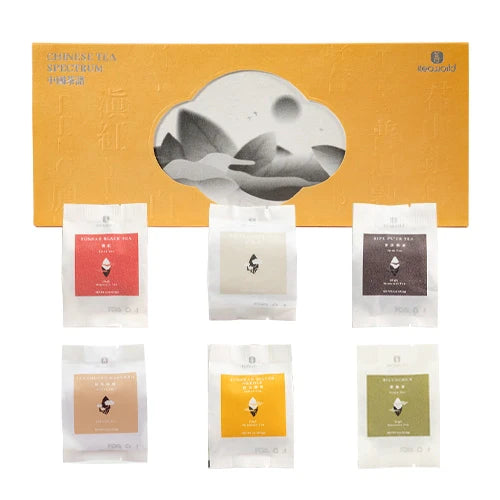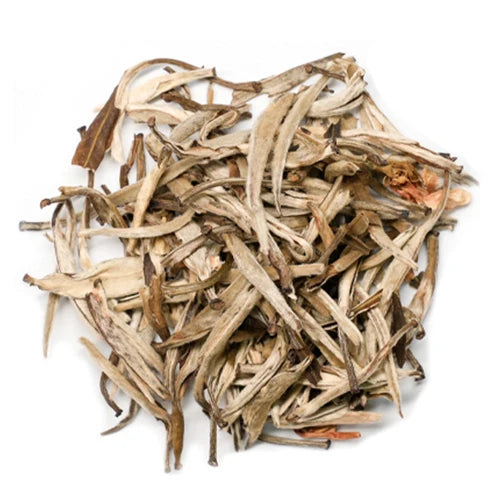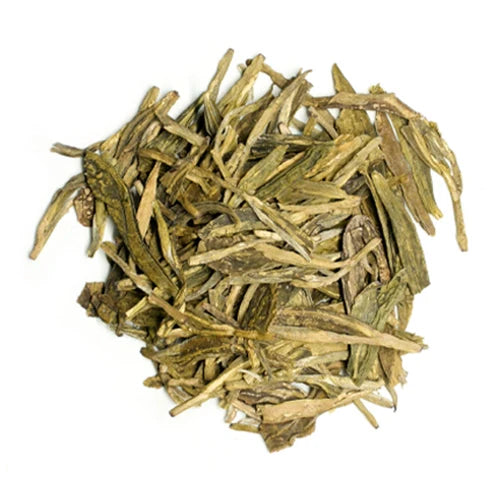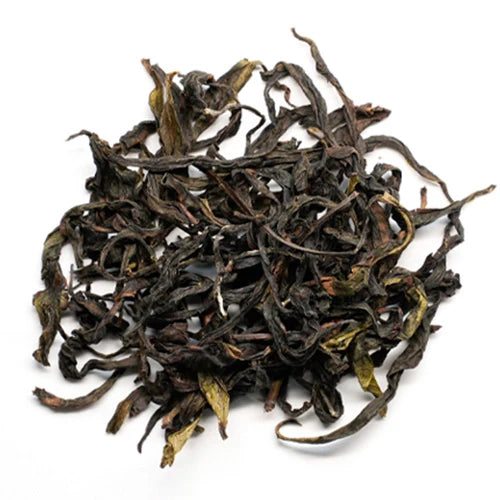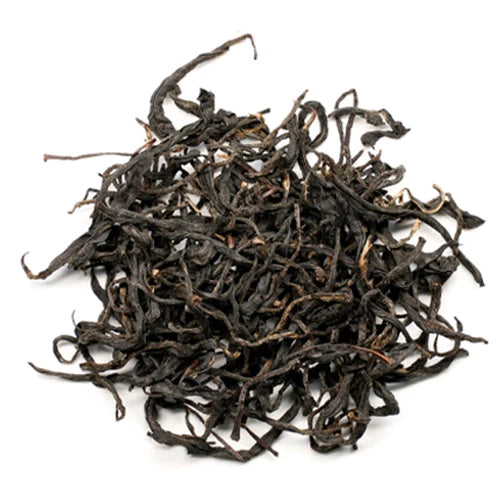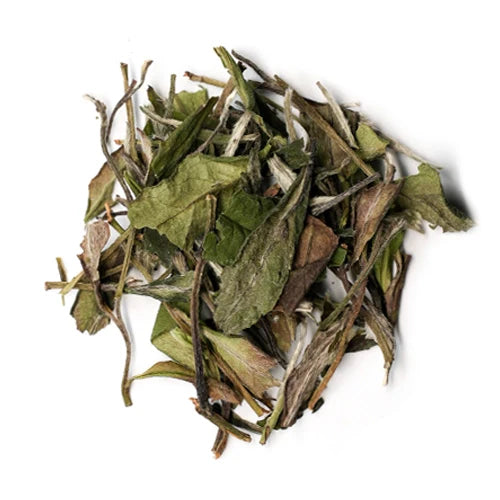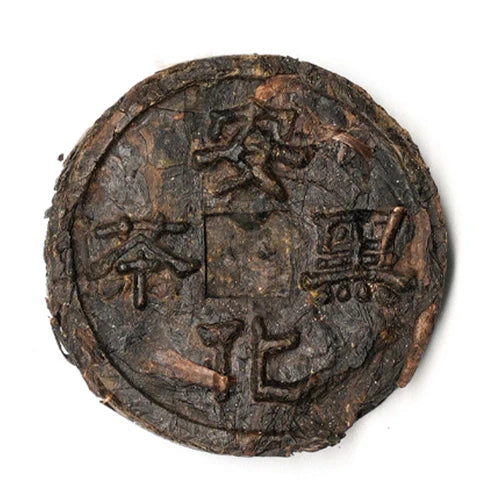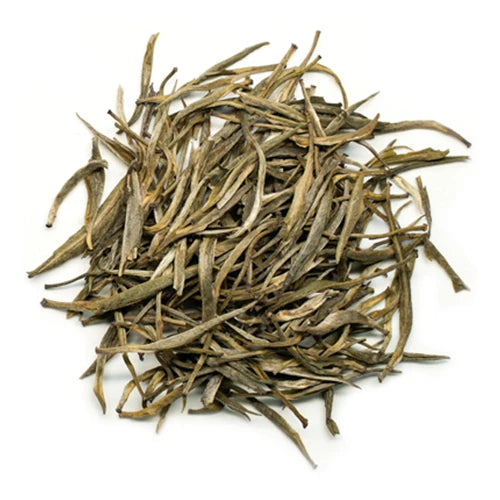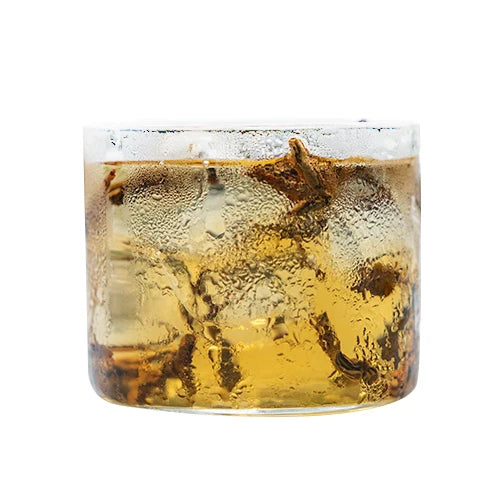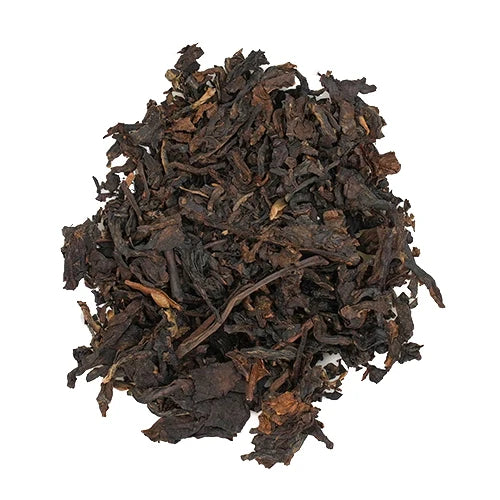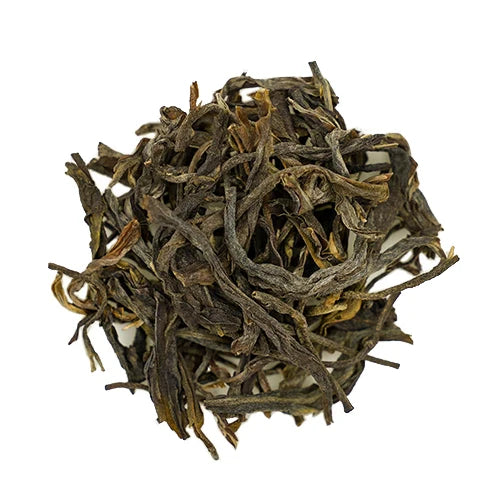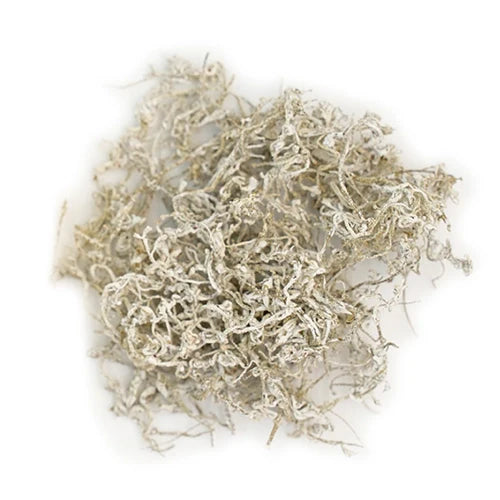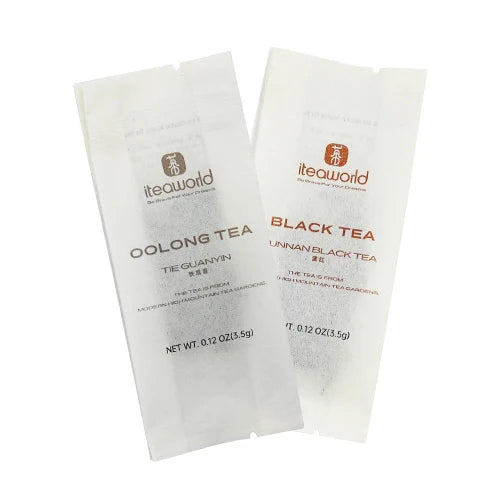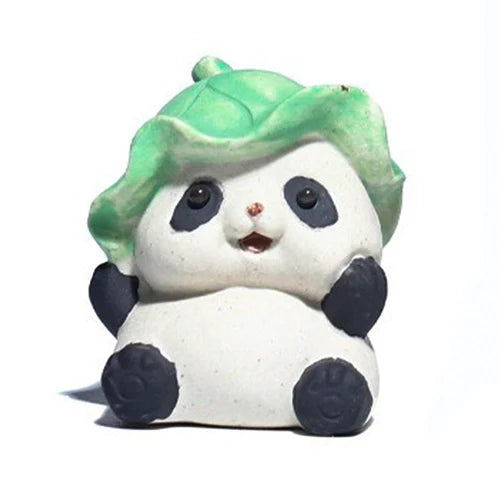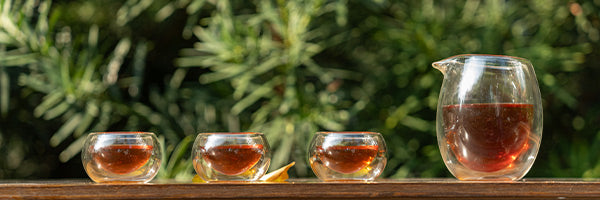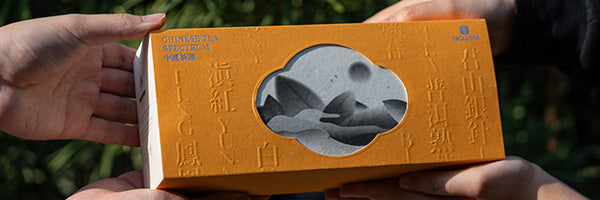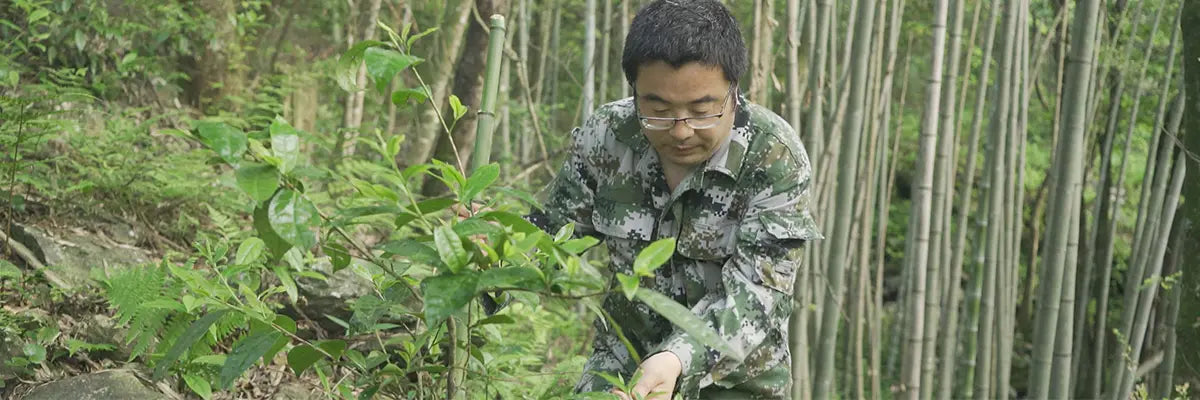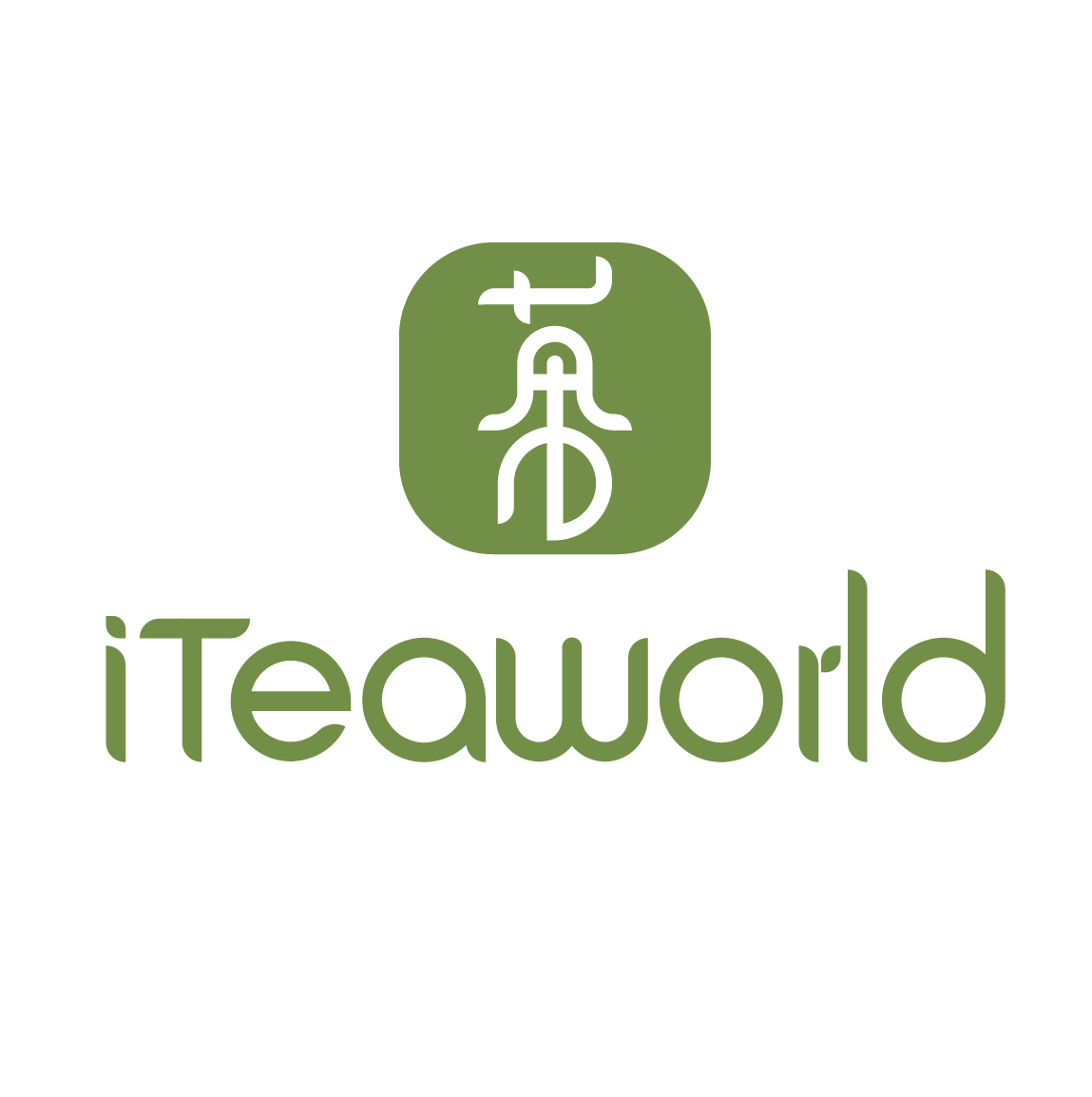Later, a tea merchant, while sending tea to his customers, decided to pack the tea in small silk bags to make it look more presentable. Upon receiving the tea, the customers directly put the tea from the small bags into hot water for brewing and found this method very convenient. Thus, bagged tea was born.
Dry Tea Size and Quality
The case is different for Chinese tea; you can clearly see whole leaves. Some loose leaf oolong tea has leaves that unfurl beautifully, revealing a sight of green leaves with red edges. Some of the best oolong tea, such as Da Hong Pao, possess this characteristic.

Taste Characteristics and Complexity
In Chinese tea, there are some teas known for their bold taste, such as Yunnan Black Tea (Dian Hong) and Lapsang Souchong, among others. At the same time, there are teas in Chinese tea culture characterized by freshness and sweetness. The variety of flavor profiles in Chinese tea is quite extensive. We recommend using a loose leaf tea sampler to explore the diverse range of Chinese teas.
How to brew?

Bagged tea generally lose their flavor after one or two brews.
The brewing process for Chinese tea is a bit more complex. You usually need basic tea utensils like a Gaiwan (lidded bowl), fairness cup, and small tea cups. The specific steps are as follows: steep the tea leaves in the Gaiwan, pour the tea liquor into the fairness cup to mix evenly, then pour the tea liquor from the fairness cup into small tea cups for drinking.
Chinese tea often retains its rich flavor after multiple brews. Some of the best loose leaf tea, such as Fenghuang Dancong and Tie Guanyin (Iron Goddess of Mercy), can be brewed up to 7 times or more.
Environmental and Health Impact
Chinese loose leaf tea, on the other hand, does not come with tea bags. Typically, when you purchase it, you get it in loose leaf form, which is more environmentally friendly and healthier. Therefore, Chinese tea is great choices for sending healthy and delicious tea gift sets to family and friends.

To ensure convenience while brewing, iTeaworld includes corn fiber tea bags with our loose leaf tea. These tea bags are biodegradable, making them environmentally and health-friendly.
Advantages and Disadvantages of Chinese Tea
- Advantages:
- More diverse and deeper flavors and aromas.
- Can be brewed multiple times. 3-5 grams of Chinese tea can yield a large amount of tea liquor.
- No plastic tea bags, more environmentally friendly.
- Disadvantages:
- Brewing process can be somewhat complex.
- Some teas depend on brewing techniques; improper brewing may result in poor taste.
- Some Chinese teas can be relatively expensive.

Advantages and Disadvantages of Bagged tea
- Advantages:
- Quick and convenient brewing.
- Affordable price.
- Disadvantages:
- Cannot be brewed multiple times.
- Lower quality in terms of taste and aroma compared to Chinese tea.
- May contain plastic tea bags, which are not environmentally or health-friendly.
If you prioritize convenience and speed, opting for bagged tea will save you a lot of time and only require simple brewing tools like a cup.
